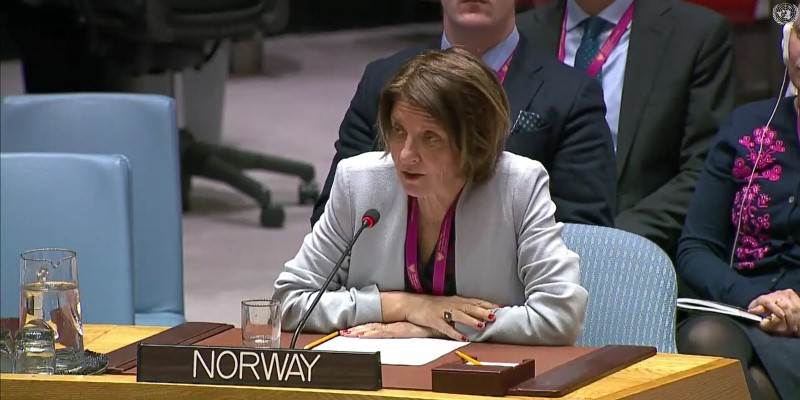Mr President,
I commend you for including this matter on the Security Council agenda. As a country with a long coastline and a large maritime sector, Norway is concerned that piracy, fisheries crime, and the trafficking of people, drugs, weapons and protected species are threatening the legitimate use of the oceans. The livelihoods and security of coastal communities are at stake. Enhanced global and regional cooperation is required. Coastal states must govern their territorial waters and their exclusive economic zones to the best of their abilities.
Mr President,
The Gulf of Guinea is among the areas where maritime security is a challenge. The members of the Gulf of Guinea Commission, ECCAS and ECOWAS took an important decision in 2013 when they adopted the Yaoundé Code of Conduct.
The implementation of the Code of Conduct is crucial for maritime safety from Angola to Cape Verde. Norway remains a committed partner in support of the implementation of the Code.
The Western Indian Ocean was the area most affected by piracy until 2012. The Contact Group on Piracy off the Coast of Somalia was able to curb these activities through a series of coordinated measures. However, pirates continue to test our readiness.
The situations in West and East Africa differ, but both require a viable legal solution. In our view, it is particularly important to prosecute the men in Somalia who organise the piracy groups. Norway supports UNODC’s efforts to assist countries in drafting anti-piracy legislation. I commend the countries that have acquired the legal instruments necessary to prosecute pirates who are arrested outside their territorial waters. Kenya, Mauritius, Seychelles and Togo are among those countries.
Another of Norway’s priorities is to assist our multilateral partners in the fight against maritime piracy. One example is our active support to INTERPOL, deploying Police Officers to the Seychelles for a period of four years. Building up local, sustainable police is a consistent way to prevent transnational organized crime.
Mr President,
Fisheries crime poses a threat to the world's fisheries resources and to economic development. Around 20 % of the fish on the market is caught illegally. Developing countries, and particularly small island states, are hardest hit. As a country that relies heavily on a sustainable blue economy, Norway has long advocated increased international cooperation and an effective legal framework to fight this type of crime. Norway provides substantial support to a number of projects to combat fisheries crime.
The Agreement on Port State Measures to Prevent, Deter and Eliminate Illegal, Unreported and Unregulated Fishing includes effective measures and places special emphasis on capacity building in developing countries to enhance their efforts to implement the Agreement. Norway has allocated almost USD 5 million in funding for UNODC’s efforts to combat fisheries crime, as well as significant resources, in cooperation with FAO, to fight illegal, unregulated and unreported fishing.
We call upon states that have not yet done so to become parties to relevant international instruments for combating organised crime at sea, including the Protocols supplementing the United Nations Convention against Transnational Organized Crime, and to take measures to ensure their implementation.
Thank you.
